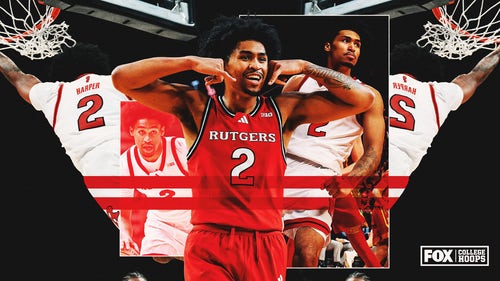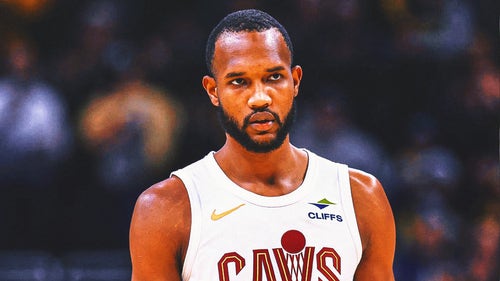
Q&A: Don't expect a miracle in Philly
I feel like our team is possibly the most disappointing in the entire league. Two years of Elton Brand and we are still no better than before. I'm curious if you think the Sixers will be able to turn it around with miracle worker Doug Collins. Or is the team just beyond repair? – Ryan Bates, Philly
Sorry to disillusion you but Doug Collins is far from being a miracle worker. In fact, in the past his teams have more often than not been underachievers. Plus he often speaks with forked tongue.
For example: When Jerry Krause sent Tex Winter to interview Collins for the Bulls job, one requirement stipulated by Krause was that Collins would coach the triangle offense. Collins said he definitely would, but when he did get the job he disdained the triangle and banished Winter to oblivion.
Also, Collins totally emphasized offense in Chicago’s practice sessions and had to be begged by his assistants to allot them five minutes just to talk about defense. Which is about right, since in his playing career Collins game plan was 95 percent offense and 5 percent defense.
Plus, Collins had no real philosophy as a coach. When an opponent ran a play that was successful, Collins was quick to incorporate it into the Bulls' playbook.
And, he routinely bad-mouthed his players behind their backs. Moreover, he kowtowed to Michael Jordan in Washington.
As for the Sixers, what you say about the dire nature of their immediate prospects is unfortunately true. Let's do a quick reconnoiter of the roster:
Louis Williams is quicker than a wish and a dynamic shooter. But he's extremely erratic and still learning how to run a ball club. Young Jrue Holiday is still too young to be dependable. And who knows about rookie Evan Turner?
Andre Iguodala is the team's best player. Possessor of one of the quickest first steps in the league, A.I. needs to work on his jumper as well as his understanding of what's a good shot and what's a bad one. Willie Green is an excellent backup. Trouble is that Iguodala and Green represent the Sixers' only defensive forces.
Andres Nocioni is tough, but foul-prone. However, he will add some backbone to his new teammates. Thaddeus Young has the tools to be a superior player. Look for Collins to help this young man feel more confident about his abilities.
At the power-forward slot, even though Brand has reportedly lost some weight, he's still more effective in a grind-it-out offense where he gets mucho ball-time. If Marreese Speights ever gets serious about his NBA career, the Sixers will have a sprightly young presence at this position.
Spencer Hawes can shoot and grab some rebounds, but he's basically a stiff. His backcup, Tony Battie, is another elongated jump shooter.
Not much here for Collins to work with. But if Philly is indeed beyond repair, at least Collins can't make them any worse.
In your opinion, how much should "winning an NBA championship" impact the legacy of a player such as Steve Nash? Naturally I feel that Nash is not a Jordan, Bird, Magic or Duncan – but I do feel that he is one of the greatest players (top 50) to ever play the game. In my book Nash will always be a championship-caliber point guard and doesn't need a championship to validate his place as one of the greatest players to play the game. – Mandeep Kataria
Winning championships is of vital importance in evaluating a player’s legacy. Given a modicum of accompanying talent, the truly great players can simply will their teams to a title. In the crunch, they are eager, willing and able to dominate the proceedings — something that Nash is unable to do. (The same goes for guys like Charles Barkley, Karl Malone, Patrick Ewing and, thus far, LeBron James.)
While Nash is indeed a terrific performer, his stats are inflated by his overwhelming ball-time — which likewise inhibits the expansion of his teammates' individual talents. Blame Mike D’Antoni for putting the glue on Nash’s fingers and a glass ceiling to his legacy.
Given your knowledge of NBA history, why do you think Kareem Abdul-Jabbar is not often mentioned in the pantheon/trinity of all-time great players (Bird, Magic, Jordan)? While I think those three were exceptional players, it seems that Kareem's resume is just as (if not more) accomplished – six titles, six MVP awards, 19-time All-Star, 5-time first-team All-Defense. Not to take away from Bird and Magic, but neither of them have quite as much on their resume nor were they ever great on defense. Everyone talks of chasing Jordan, who has six rings, but no one talks of chasing Kareem who also has six. – Rod, Michigan
A-J’s defense, such as it was, was strictly a function of his size. No question that he was a supremely talented scorer (but not a rebounder), and a better-than-average passer. However, Kareem’s biggest drawback was an overbearing arrogance that made enemies of too many of his coaches and fellow players.
Not that Magic was an angel, but he did understand how to smile and be nicey-nicey to the media. And Bird was always up front about everything.
Also, many NBA insiders saw Kareem as a physical freak who had a freakish shot — his Sky Hook. In any event, he still seems too otherworldly to be given the props he deserves.
How do you rate three historical X-factor players? Can you break down the games of Kurt Rambis, Dennis Rodman and Ron Artest and tell us which you'd rather have on your team going into the NBA Finals against a strong, intelligent opponent. – DaveTheWave, Whistler, Canada
Rambis was a powerful defender and a perpetual scrapper with no offensive tools. A perfect fit for a team like the Lakers that had so many top-notch scorers — variously Kareem Abdul-Jabbar, James Worthy, Jamaal Wilkes, Norm Nixon, Byron Scott, Magic Johnson and Bob McAdoo. Rambis averaged a rebound for every 3.3 minutes that he played, significantly above the standard 1:4 that power forwards should produce.
Artest is more of a power than a speed defender, but he’s one of the best ever in this category. In his younger days, his post-up offense was excellent, and he can still hit an occasional long-distance jumper. Give Artest one rebound for every 6.9 minutes, a vastly inferior proportion. He’s a better passer than Rambis and just as much of a hatchet man. Also, while Rambis (and Rodman) were happy to play almost exclusively without the ball, Artest gets antsy when he can’t fondle the rock.
Rodman was, by far, the best athlete — the fastest, quickest and possessed of the best elevation. He could defend every position except point guard and do an extraordinary job. Rodman was also a precision executor of whatever game plan his coaches proposed. He also knew his shortcomings and rarely tried to do anything that he couldn’t do successfully. He was also a perfect fit on teams that had potent scorers — from Isiah Thomas to Michael Jordan. Overall, he averaged one rebound per 3.8 minutes of daylight, but in his prime Rodman's proportion was 1:3.
All teammates being equal — and discounting emotional stability — Rodman wins, Artest places and Rambis shows.
I am a Laker fan and grew up watching Magic. I listened to him talk about Oscar Robertson and how good he was. Can you provide a profile of him and how he might fare in today's game and against other great point guards? For example, how would he compare to Magic and Deron Williams? – John J Noel
The Big O was better than both. He was a better post-up player, mid-range shooter, scorer, rebounder and defender. Magic gets the nod in passing, but not by much. Robertson’s long-range shooting was never a factor for two reasons. The 3-point line was yet to be. And he could always maneuver/power his way into 15-18 foot range.
Magic was stronger but not by as great a margin as one might think. And the same goes for Williams' slight edge in foot speed.
The only thing that Robertson could not do was fly.
What was the last GREAT team you think played? I mean team ball where there wasn’t a 25 ppg scorer. Why is it such common belief that you need a great scorer? – Rik Mayer, Salt Lake City
A better question might be this: How many teams have won championships when led by 25 ppg scorers?
The 2005-06 Heat with Dwyane Wade. The last two Laker teams: Shaq’s Lakers of 1999-2002 (include Kobe in 2001). All of Jordan’s teams (1991-93, 1996-98). Olajuwon’s Rockets (1995-96). Bird's Celtics (1986). Rick Barry's Warriors (1975). The Lakers with Gail Goodrich and Jerry West (1972). Abdul-Jabbar's Bucks (1971). And George Mikan's Lakers (1950-51).
That’s 19 times in 63 years.
For the best teamwork, look no further than Boston in 2008, any of San Antonio’s titlists, and all of Bill Russell’s teams. The best team-oriented ballclub that didn’t win a championship (in the modern age) was the Bulls in 1993-94 when Jordan was playing baseball. This outfit ran the triangle offense better than any of Phil Jackson’s teams before or since.
Having a super-high scorer is useful because there’s no second-guessing when he’s the go-to scorer — and the refs are inclined to put him on the line when there’s questionable contact. At the same time, having one predominant point-maker lets the defense anticipate exactly where the ball is going to be in clutch situations — and smart defensive squads can make the necessary adjustments.
So blame the stat-celebrating media for the disproportionate attention paid to upper-echelon scorers.
If you have a question, comment or column idea for Charley Rosen, please email charleyrosen@gmail.com and he may respond in a future column.










